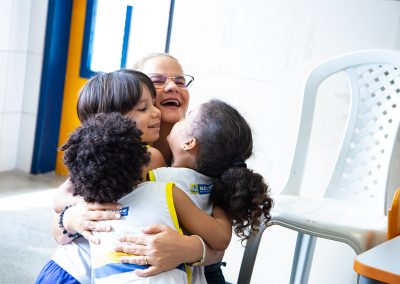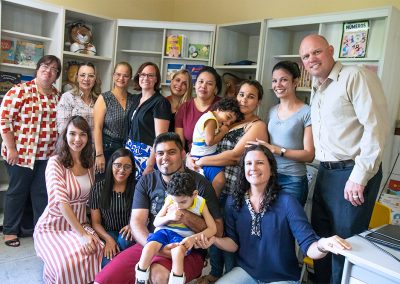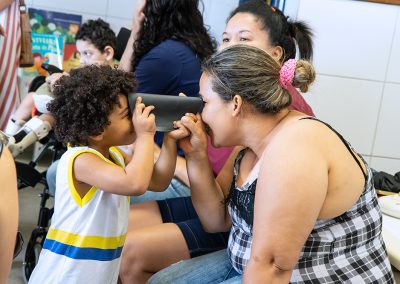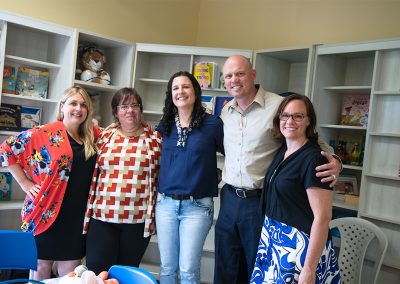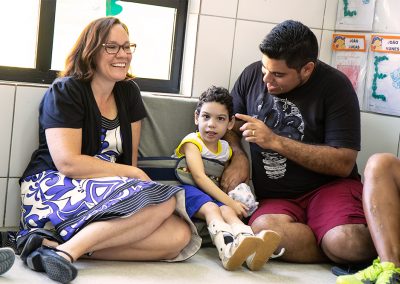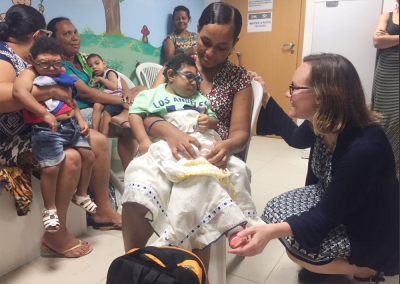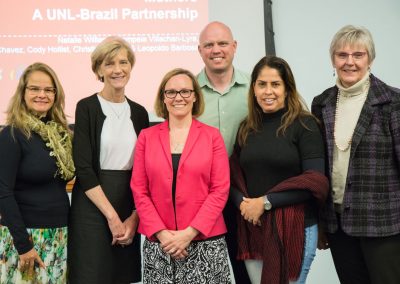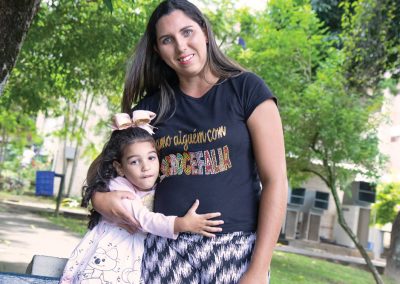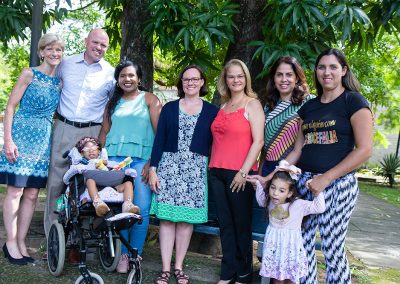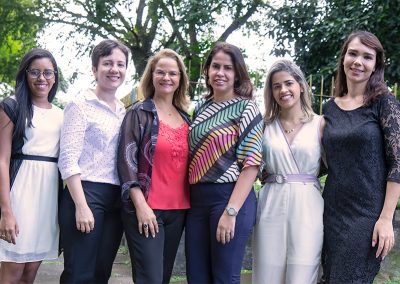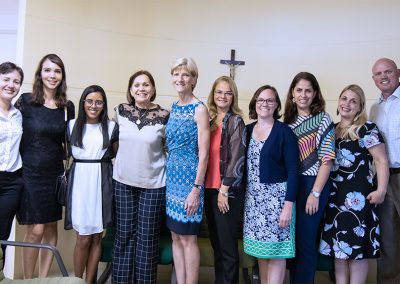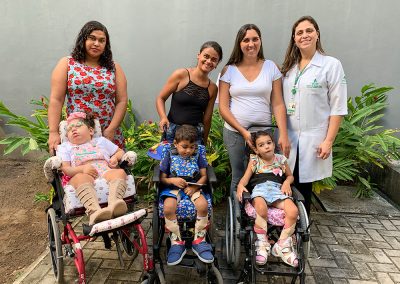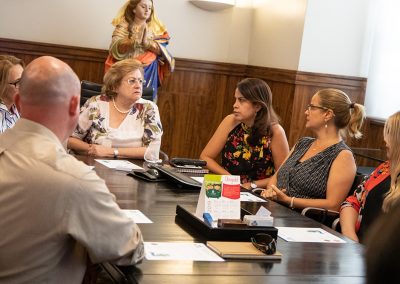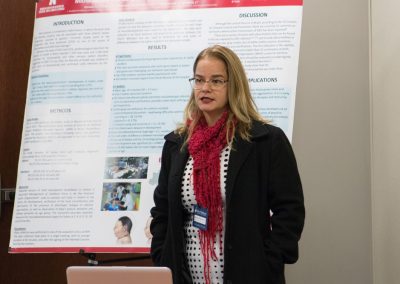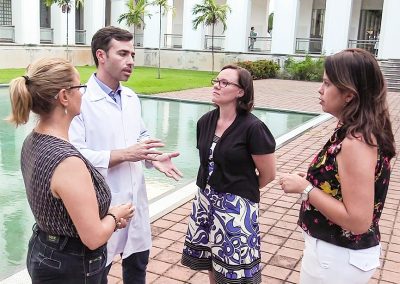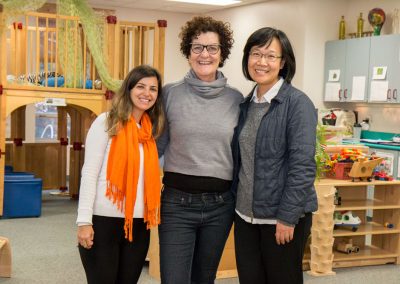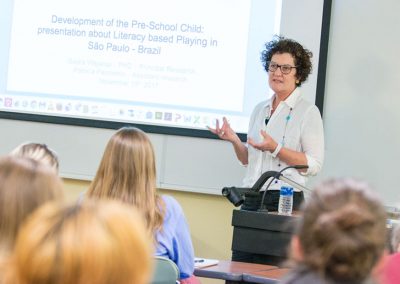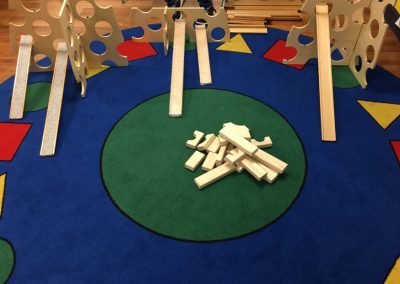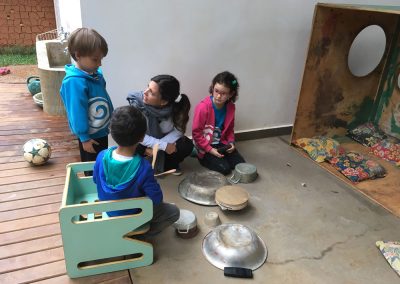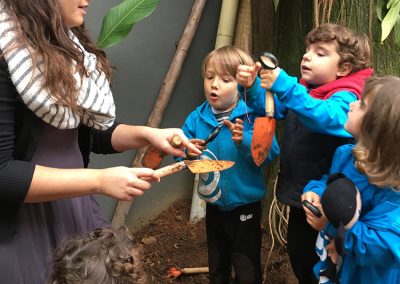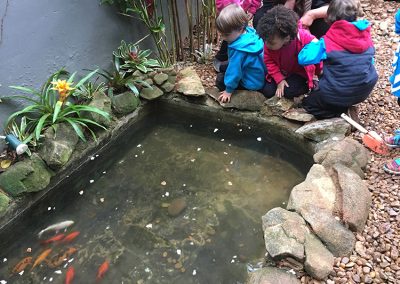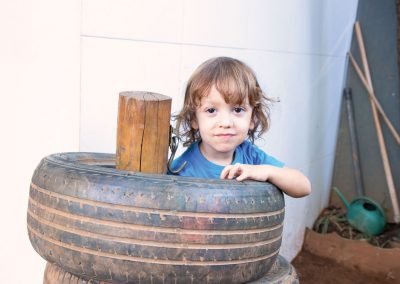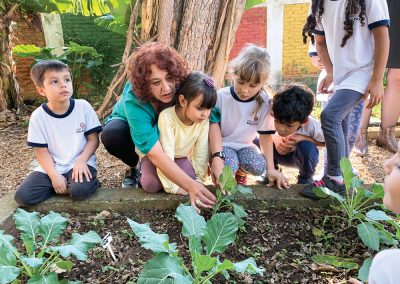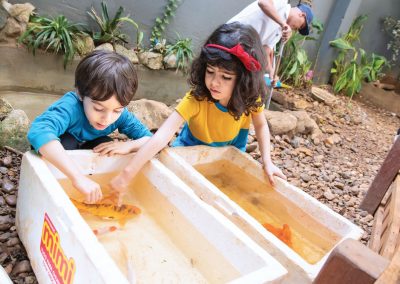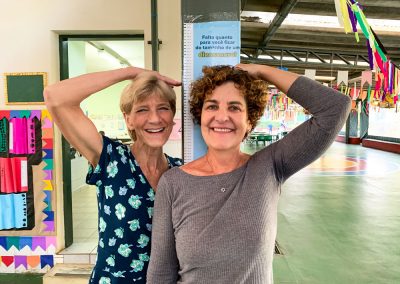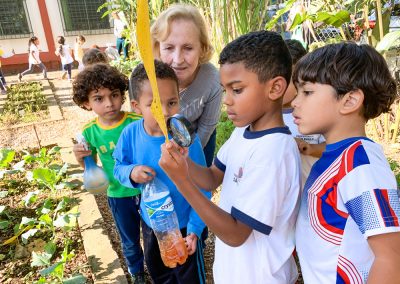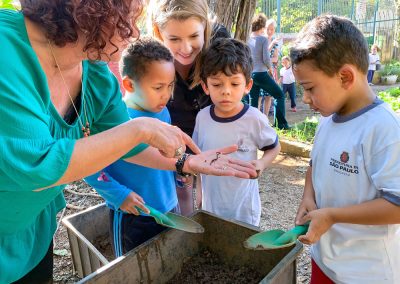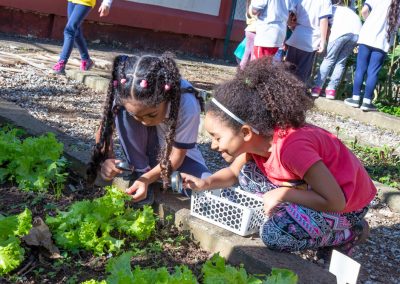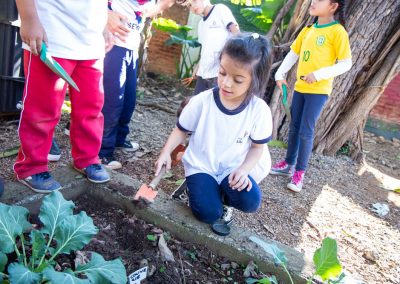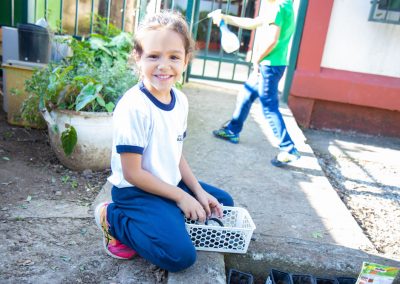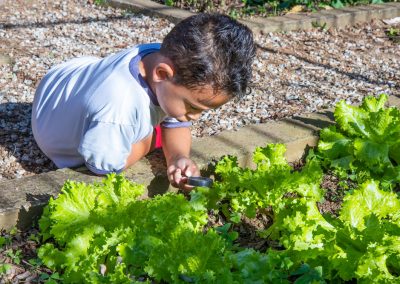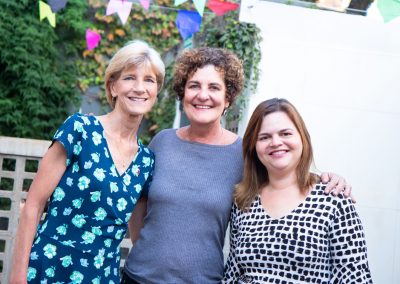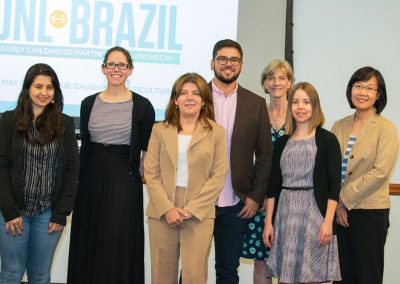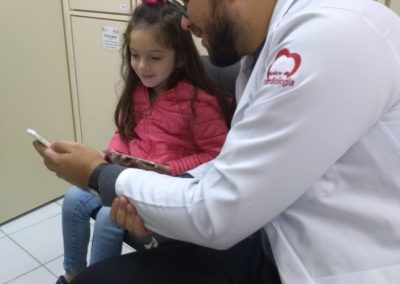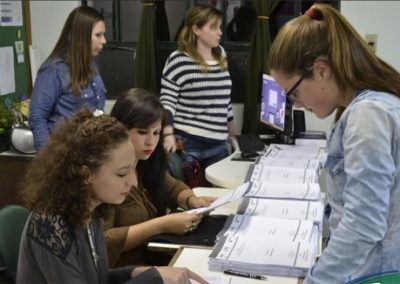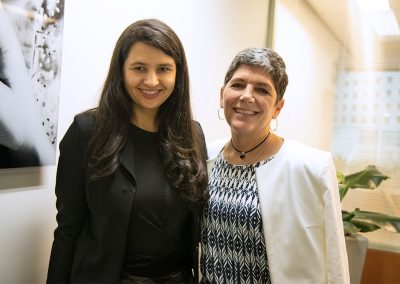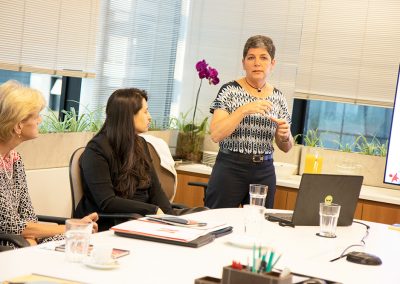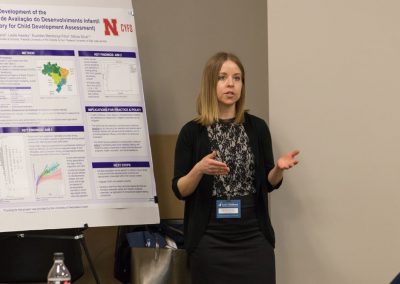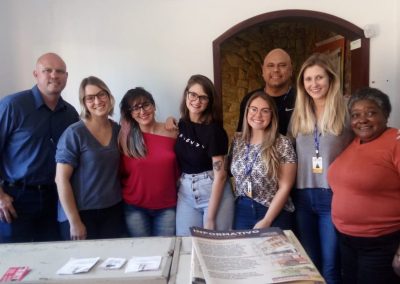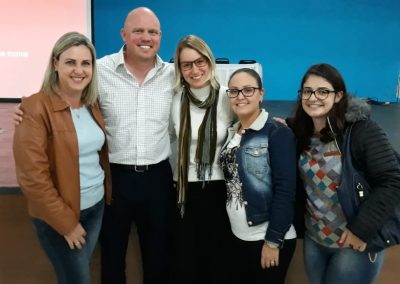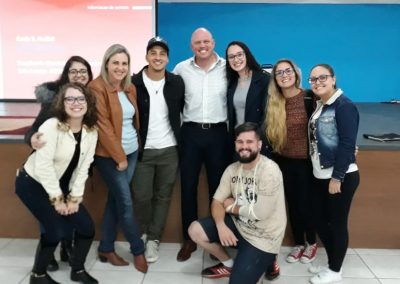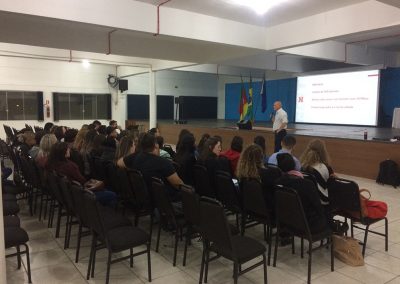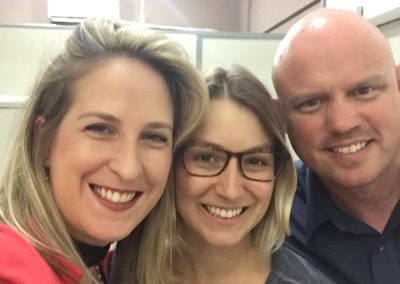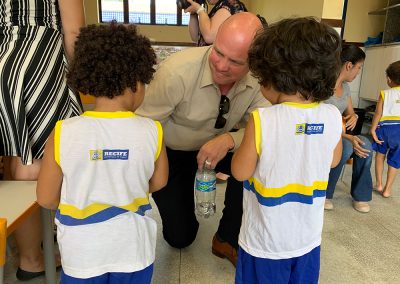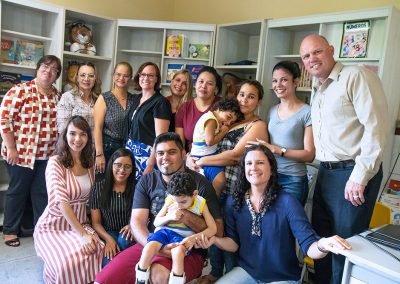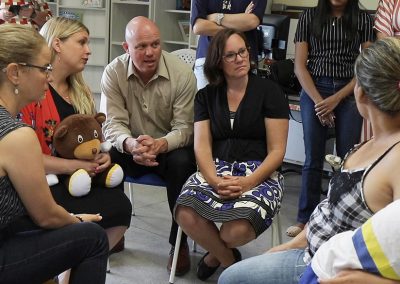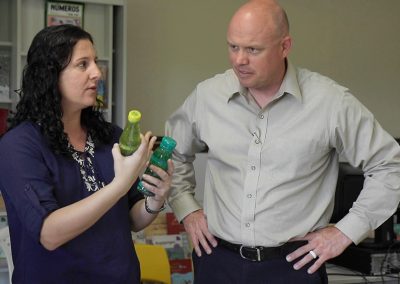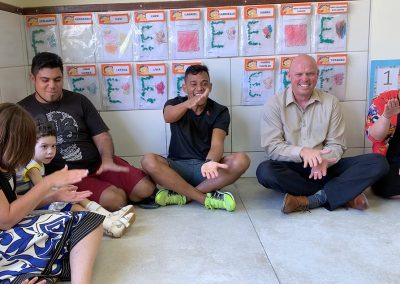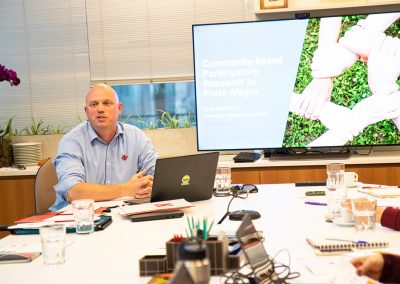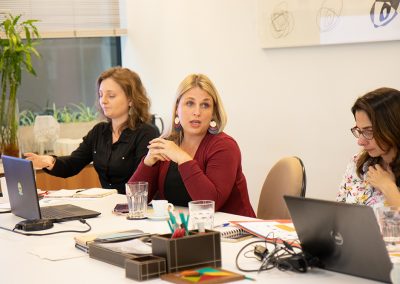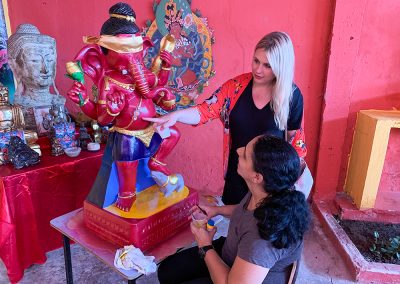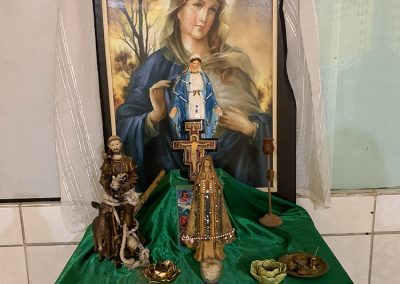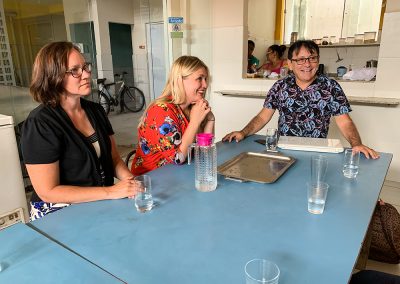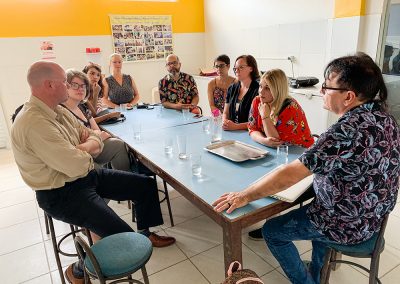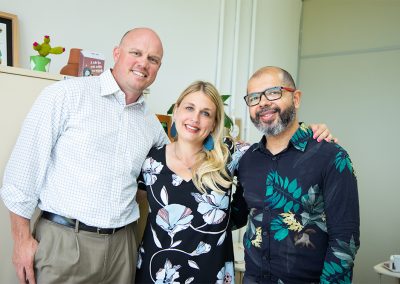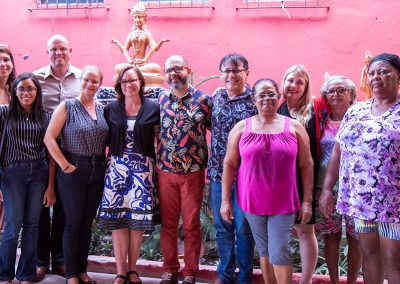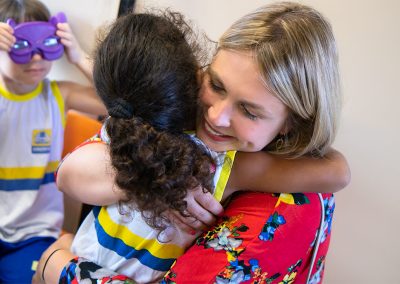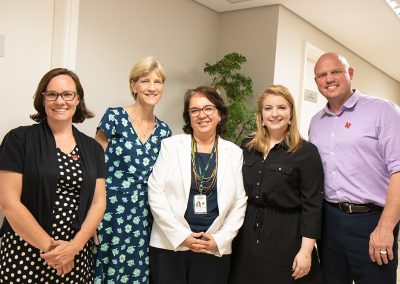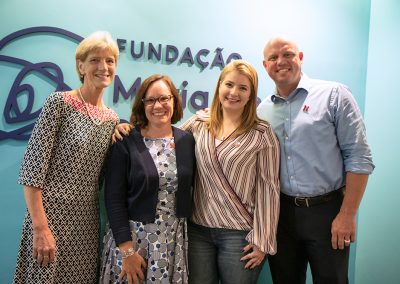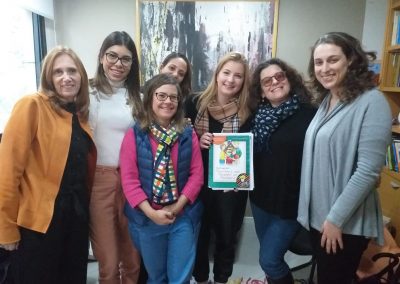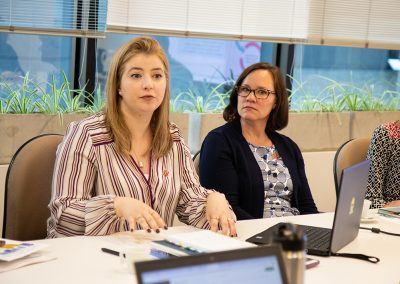About the Partnership
Following a 2016 workshop in São Paulo, Brazil, the University of Nebraska–Lincoln and the Maria Cecilia Souto Vidigal Foundation launched a global partnership to address critical early childhood challenges through interdisciplinary research collaboration.
The initiative established two pilot impact projects, conducted jointly in both the U.S. and Brazil, around research priority areas that have important implications for children’s health, well-being and development — and ultimately, their future success. The pilot work created space for additional collaboration activities in research and innovation.
The international partnership has enabled teams to gain a richer understanding of the similarities and contrasts between the different geographic settings and uncover key insights that would not be possible without cross-cultural collaboration.
Research
The partnership fosters research collaboration to address the following priority areas:
- Promoting early learning
- Understanding the ecology of development
- Assessing program quality
- Promoting professional development
- Creating a standardized tool to identify developmental delays
- Fostering mindfulness and compassion in caregiving
- Addressing substance use among teens
- Engaging vulnerable communities in family and child development
Impacts
The partnership allows researchers to share ideas, perspectives and expertise to co-develop meaningful, evidence-based solutions that impact lives in both countries.
The research aims to improve real-life practice across the globe to benefit:
- Children, youth and their families
- Caregivers to young children
- Education professionals and researchers
- Health care professionals
- College students preparing to work in education
power of PARTNERShip
The Nebraska-Brazil Early Childhood Partnership is built on relationships. The work is made possible through numerous partners with whom the University of Nebraska-Lincoln research team has developed mutually beneficial relationships, including several universities, schools and community agencies in Brazil interested in achieving common goals.
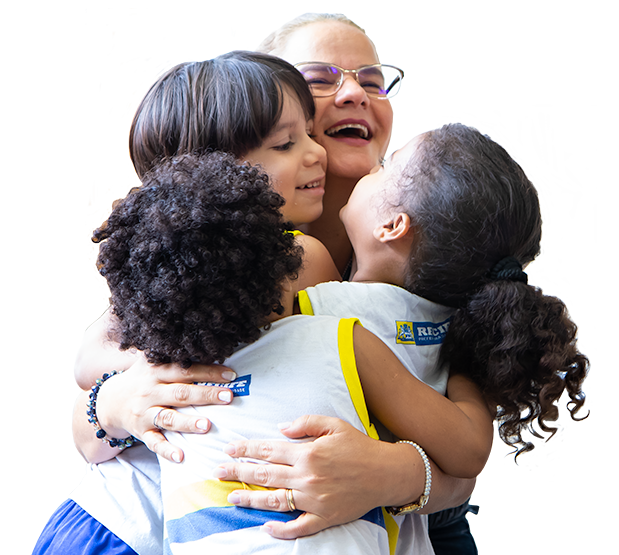
Key partners
PROJECTS
Another project was established to address Brazil’s need for a culturally relevant screening tool to assess children’s development.
While the first phase of these projects ended in 2019, researchers in both countries continue to work together to move the descriptive work into real-life practice.
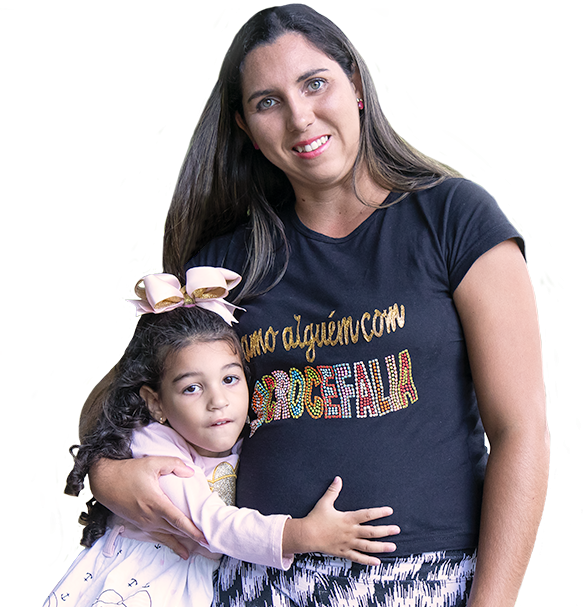
In the wake of the 2015-2016 Zika outbreaks in Brazil, parents of children born with congenital Zika syndrome were confronted with many challenges that made them vulnerable to adverse mental health impacts. Parenting a child with significant medical and developmental needs, often with little support, can lead to high levels of anxiety and depression and interfere with their ability to offer optimal care.
Researchers from Nebraska and Brazil set out to understand the psychological experiences of Zika-affected caregivers in an effort to develop an early intervention program to enhance caregiver well-being and their capacity to support their children’s long-term health and development.
photo gallery
Understanding the needs of
Zika-affected caregivers

Understanding the needs of Zika-Affected Caregivers
In the wake of the 2015-2016 Zika outbreaks in Brazil, parents of children born with congenital Zika syndrome were confronted with many challenges that made them vulnerable to adverse mental health impacts. Parenting a child with significant medical and developmental needs, often with little support, can lead to high levels of anxiety and depression and interfere with their ability to offer optimal care.
Researchers from Nebraska and Brazil set out to understand the psychological experiences of Zika-affected caregivers in an effort to develop an early intervention program to enhance caregiver well-being and their capacity to support their children’s long-term health and development.
the research team
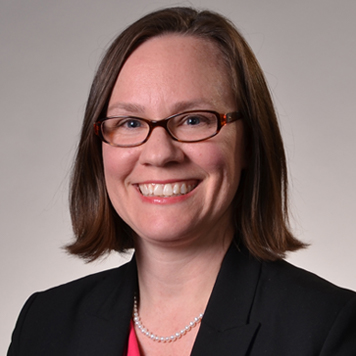
University of Nebraska–Lincoln
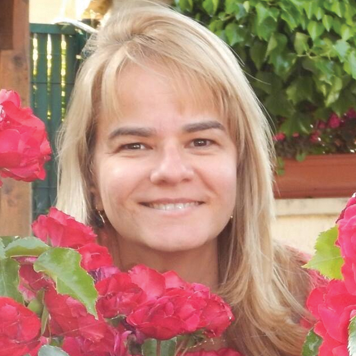
Universidade Federal Rural de Pernambuco
A Closer Look
Resources:
Related stories:
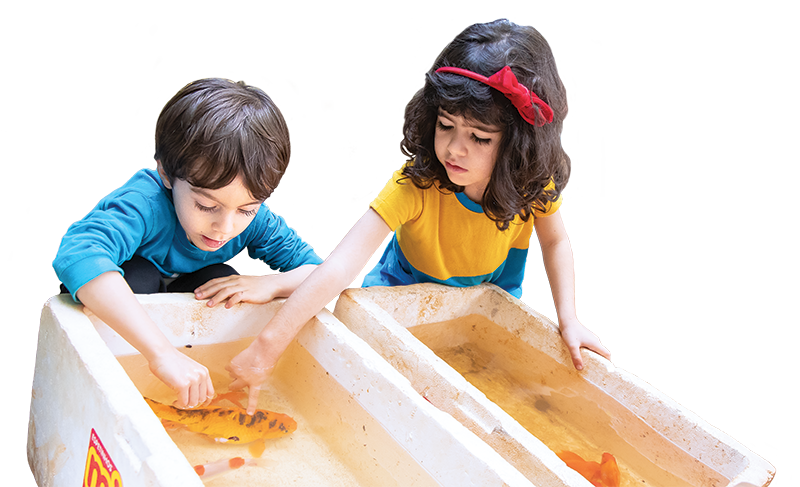
Researchers from Nebraska and Brazil launched Preschool Science Talk in Action and Reflection (PreSTAR), which uses professional development strategies to promote reflective practice in science teaching and learning. The study aimed to better understand preschool science learning and teaching, and specifically how early childhood professionals can intentionally reflect on their own practices to enhance children’s learning and development.
photo gallery
ENHANCING
PRESCHOOL
SCIENCE INSTRUCTION

enhancing preschool science instruction
Researchers from Nebraska and Brazil launched Preschool Science Talk in Action and Reflection (PreSTAR), which uses professional development strategies to promote reflective practice in science teaching and learning. The study aimed to better understand preschool science learning and teaching, and specifically how early childhood professionals can intentionally reflect on their own practices to enhance children’s learning and development.
the research team
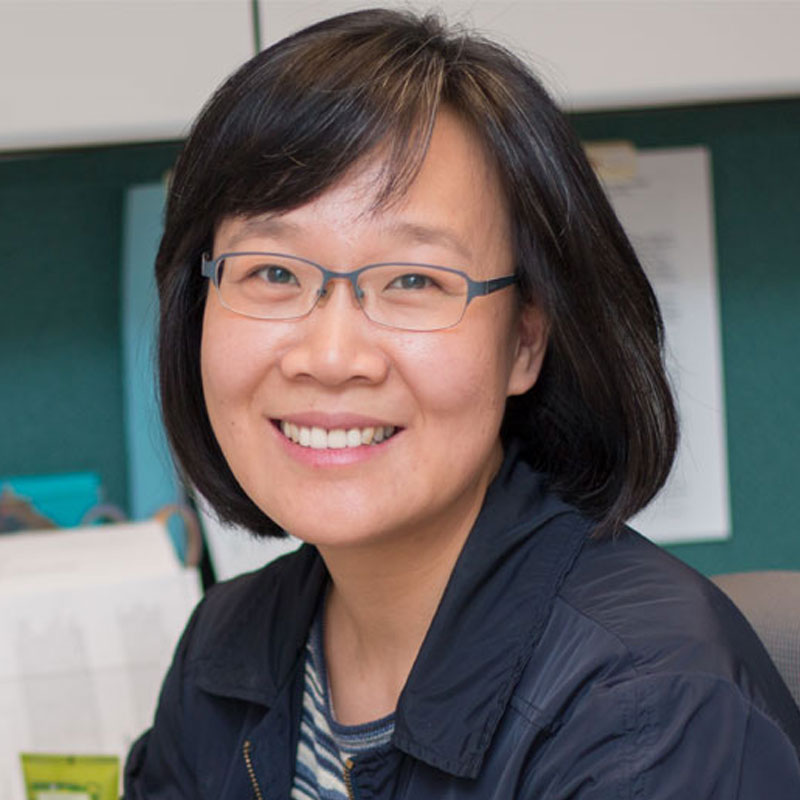
University of Nebraska–Lincoln
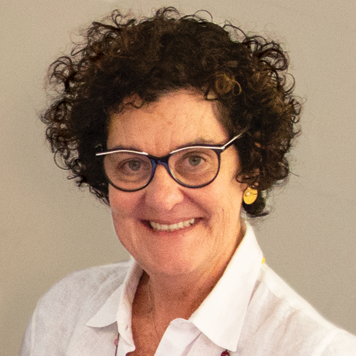
Pontifícia Universidade Católica de São Paulo
A Closer Look
Resources:
Related stories:
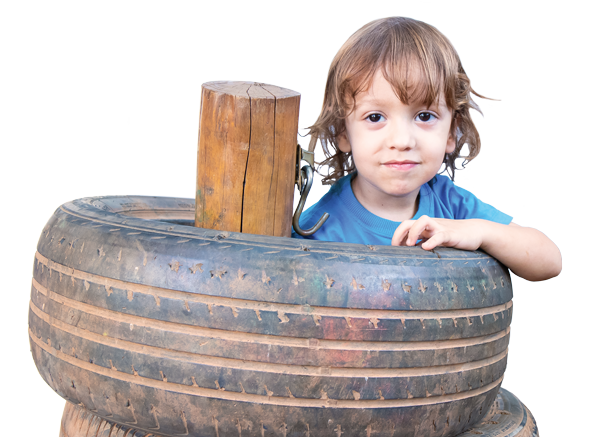
The Dimensional Inventory for Child Development Assessment (IDADI) is the first such tool to be developed and standardized specifically for children in Brazil — taking into account the unique culture and experiences of the target population.
photo gallery
IDENTIFYING DEVELOPMENTAL DELAYS IN
YOUNG CHILDREN ACROSS BRAZIL

IDENTIFYING DEVELOPMENTAL DELAYS IN YOUNG CHILDREN ACROSS BRAZIL
The Dimensional Inventory for Child Development Assessment (IDADI) is the first such tool to be developed and standardized specifically for children in Brazil — taking into account the unique culture and experiences of the target population.
the research team

University of Nebraska–Lincoln

Universidade Federal do Rio Grande do Sul
A Closer Look
Resources:
Related stories:
New Directions
- Strengthening Families Using a Community-Based Participatory Approach
- Addressing Substance Use in Secondary School
- Cultivating Compassionate Caregiving and Learning Environments in Early Childhood
- TAPP para Famílias Brasileiras (Teacher and Parents as Partners)
STRENGTHENING FAMILIES
USING A COMMUNITY-BASED PARTICIPATORY APPROACH
Cody Hollist, associate professor of child, youth and family studies, is working with researchers in Brazil to address the needs of vulnerable youth and families in the Cachoeirinha neighborhood of Porto Alegre. The team is working closely with community members to develop sustainable interventions that strengthen families while using resources effectively. Hollist’s additional work in Brazil includes addressing substance use and trauma among teens in São Paulo and using a U.S. Fulbright award to study factors driving suicide and self-harm among the country’s young people.
photo gallery
STRENGTHENING FAMILIES USING A COMMUNITY-BASED PARTICIPATORY APPROACH
Cody Hollist, associate professor of child, youth and family studies, is working with researchers in Brazil to address the needs of vulnerable youth and families in the Cachoeirinha neighborhood of Porto Alegre. The team is working closely with community members to develop sustainable interventions that strengthen families while using resources effectively. Hollist’s additional work in Brazil includes addressing substance use and trauma among teens in São Paulo and using a U.S. Fulbright award to study factors driving suicide and self-harm among the country’s young people.
A Closer Look

University of Nebraska–Lincoln
Resources:
Related stories:
compassionate caregiving
and learning environments in early childhood
Holly Hatton-Bowers, assistant professor of child, youth and family studies, is working with researchers in Brazil to adapt compassion and mindfulness-based programs developed in the U.S. to support caregivers in Brazil. This research aims to cultivate resilience, compassion, and kindness among caregivers to improve well-being and increase capacity to deliver high-quality care to young children. Through the partnership, Hatton-Bowers has established relationships with several Brazilian colleagues interested in using these strategies in education and medical settings.
photo gallery
COMPASSIONATE CAREGIVING and LEARNING ENVIRONMENTS IN EARLY CHILDHOOD
Holly Hatton-Bowers, assistant professor of child, youth and family studies, is working with researchers in Brazil to adapt compassion and mindfulness-based programs developed in the U.S. to support caregivers in Brazil. This research aims to cultivate resilience, compassion, and kindness among caregivers to improve well-being and increase capacity to deliver high-quality care to young children. Through the partnership, Hatton-Bowers has established relationships with several Brazilian colleagues interested in using these strategies in education and medical settings.
A Closer Look

University of Nebraska–Lincoln
TAPP para
Famílias Brasileiras
Renata T.M. Gomes, graduate student in the Nebraska Center for Research on Children, Youth, Families and Schools, is leading the effort to bring Teachers and Parents as Partners (TAPP) to Brazil. TAPP is an evidence-based problem-solving model that fosters collaboration between teachers and parents to improve students’ social, behavioral and academic outcomes. Gomes, along with her mentor Sue Sheridan, is building support for family-school partnership in Brazil and working to introduce and adapt TAPP to the Brazilian culture with help from Porvir.
photo gallery
TAPP para Famílias Brasileiras
Renata T.M. Gomes, graduate student in the Nebraska Center for Research on Children, Youth, Families and Schools, is leading the effort to bring Teachers and Parents as Partners (TAPP) to Brazil. TAPP is an evidence-based problem-solving model that fosters collaboration between teachers and parents to improve students’ social, behavioral and academic outcomes. Gomes, along with her mentor Sue Sheridan, is building support for family-school partnership in Brazil and working to introduce and adapt TAPP to the Brazilian culture with help from Porvir.
A Closer Look
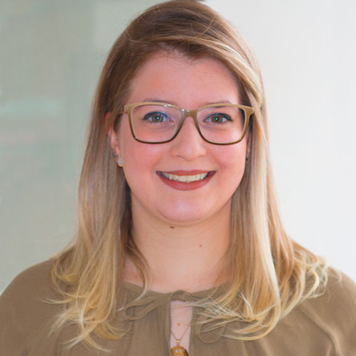
University of Nebraska–Lincoln
